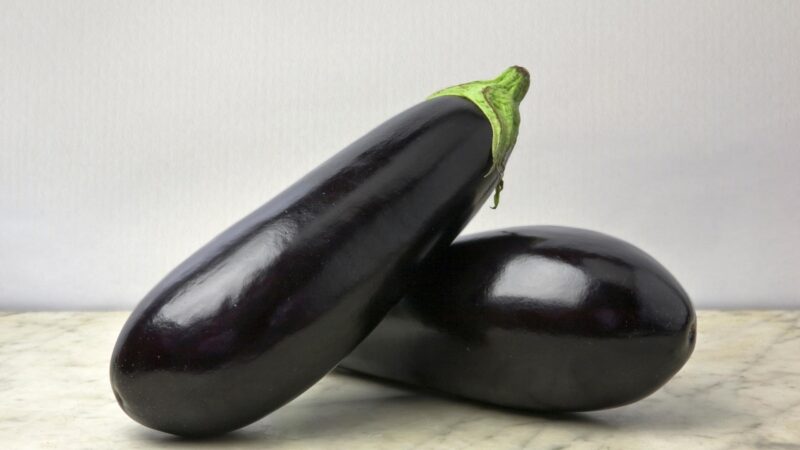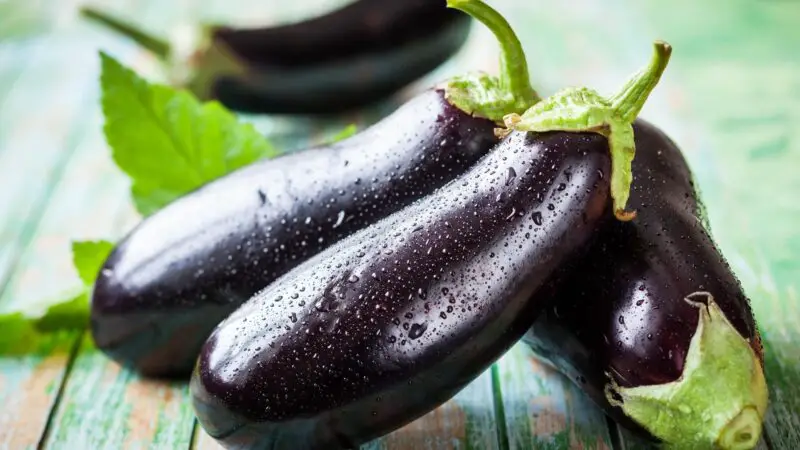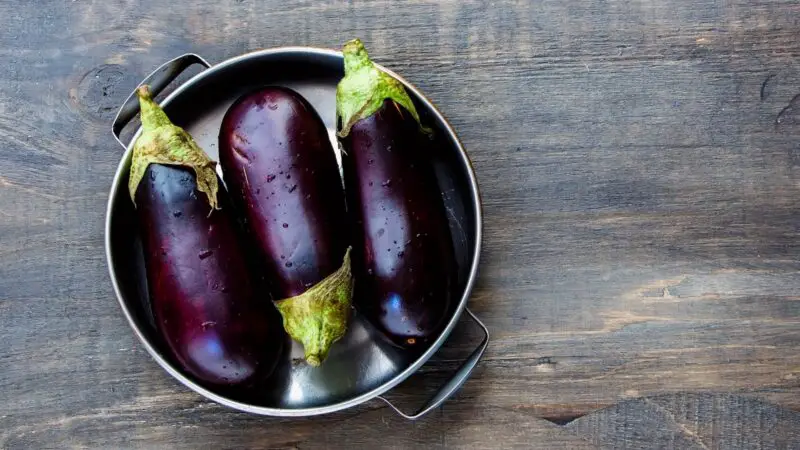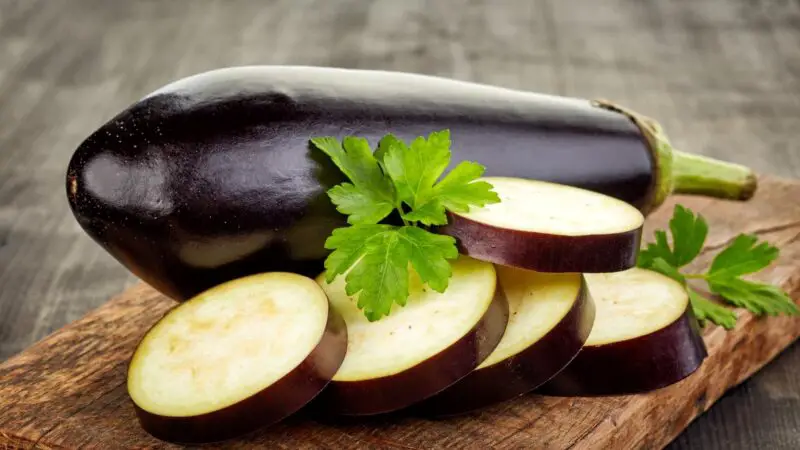Feeding your guinea pig requires extra caution. You must know what and what not to feed them. They have their own peculiar diet. Guinea pigs are small and delicate animals that need constant check and care.
They are a charming human companion. If you want to have them for a lifetime, you must be willing to sacrifice a considerable amount of time to settle them.
Can guinea pigs really eat aubergine? Guinea pigs can eat aubergine. Aubergines are vegetables and they are incredibly delicious foods for your guinea pigs. Although they are a very good source of fiber, which aids digestion and improves bowel function, they are comparatively low in vitamins and other necessary macronutrients that are usually found in fruits and vegetables of this kind.
Aubergines are usually also referred to as eggplants. Guinea pigs are herbivores, and they certainly love the aubergine for its spongy delicious taste. However, feeding them heavily with aubergine is not good.
In the following sections, we will provide details about them for you to easily understand.
Table of Content
Is Aubergine Good for Guinea Pigs? | Health Benefits

Although aubergines are delicious, they are not so nutritious. Eggplants are best reserved as very rare treats because of the very low nutritional value they possess.
If you feed aubergines to your lovely piggy, it definitely will benefit one or more nutrients from it. Although it is considerably low in beneficial nutrients, they are relatively rich in fiber which significantly improves the condition of the heart and aid digestion in guinea pigs.
Aubergine is a vegetable. It naturally has constituents that help to curb heart diseases and check weight management and loss. It also contains antioxidants that keep the liver heavily protected from harmful toxins.
Another amazing fact about aubergines is that they prevent the growth and spread of tumors and cancer in the body. It contains polyphenols that have anti-cancer effects.
There are anthocyanins and chlorogenic acid contents which protect cells from breakdown by assisting in the transferring of nutrients into the cell and release of waste.
In addition to this, it has been confirmed by scientists that anthocyanins, which is a very powerful antioxidant found in aubergine, help to prevent neuroinflammation from surfacing. It also helps to facilitate the flow to the brain.
Ultimately, it is helping in sustaining the memory and preventing mental disorders that arise as a result of old age.
Nutrition Facts of Aubergine

Aubergine is not so nutritious, but it contains a reasonable quantity of nutrients that can be beneficial to your guinea pig. In the Journal of the American Society for Horticultural Science, eggplant is listed as one of the top 10 vegetables because it has antioxidant content such as:
- Flavonoids (anthocyanins)
- Nasunin
- Polyphenols
- Potassium
- Fiber
- Vitamins C
- B6
These nutrients are important in the growth and development of animals such as guinea pigs.
Raw eggplant contains magnesium, carbohydrates (6%), protein (1%), water (92%), and an insignificant amount of fat. Increases and decreases in the level of nutrients are based on environmental and weather changes.
The following nutritional value per (100g) was extracted from Wikipedia:
- Energy (104kJ)
- Carbohydrates (5.88g)
- Sugars (3.53g)
- Dietary fiber (3g)
- Fat (0.18g)
- Protein (0.98 g)
There is also a wast range of vitamins but their quantity is not that high:
- Thiamine (B1) – 3% (0.039 mg)
- Riboflavin (B2) – 3% (0.037 mg)
- Pantothenic acid (B5) – 6% (0.281 mg)
- Vitamin B6 6% – (0.084mg)
- Niacin (B3) 4% – (0.649mg)
- Vitamin C 3% – (2.2 mg)
- Vitamin E 2% – (0.3 mg)
- Folate (B9) 6% – (22 μg)
- Vitamin K 3% – (3.5 μg)
And lastly here are the minerals:
- Calcium – 1% (9 mg)
- Iron – 2% (0.23 mg)
- Magnesium – 4% (14 mg)
- Manganese -11% (0.232 mg)
- Phosphorus – 3% (24 mg)
- Potassium – 5% (229 mg)
- Zinc – 2% (0.16 mg)
- Water – (92 g)
Is Aubergine Bad for Guinea Pigs? | Possible Risks

In everything you do, moderation is the best policy. Eggplants can be consumed by guinea pigs. But too much can be detrimental too.
The nasunin found in the eggplant skin gives it the purplish color and glossy feel content in it. It works together with the iron in the body and can be very useful for people who have a great amount of iron in their bodies.
However, if your guinea pig is deficient in iron, it is better not to feed aubergine to your piggy.
Eggplants are categorized under the family of nightshades (potatoes, tomatoes, and bell peppers) which are quite popular for toxicity. Researchers confirm that nightshades contain alkaloids (solanine), too much of it can cause arthritis or inflammation in the body.
Also, doctors believe that eggplants can cause kidney-related diseases. So, be careful not to overfeed your piggy. People have observed that when eggplant is fed to pets generally in large quantity, they tend to display symptoms like rash development, diarrhea, indigestion, vomiting, and nausea.
All of which can affect the digestion system of the guinea pig.
More Information About Aubergine and Guinea Pigs
What Part of the Aubergine Should the Guinea Pig Eat?

Make sure you remove all the leaves because they can be toxic. Also, make sure to feed your piggy with raw eggplant that is ripe, fresh, and clean. Raw and ripe aubergines are more nutritious than cooked ones.
Do not feed your cavy with the greens or leaves of eggplants. They are very toxic. It can cause a painful death to your cavy.
Cooked ones have reduced nutrients, as a result of heat. Whenever you go to the market, be sure to buy fresh organic eggplants. They are the best option to feed your piggy because they are not grown with pesticides or fertilizers.
How Often Should You Feed Aubergine to Your Guinea Pig?

Many animals scientists believe that it is better to completely avoid feeding guinea pigs aubergines. But in a real sense, they are not so dangerous. It is only when you feed them excessively to your piggies that you may begin to notice negative effects.
You definitely don’t want to include it in the daily diet of your piggy. However, you can feed them maybe once or twice a week with it, so that they consider it a treat.
Quick Facts on Aubergines

- Aubergines are also referred to as eggplants and garden eggs.
- In India, they are called Brinjal. They are called Berenjena in Spain, Patlican in Turkey, and Melanzana in Italy.
- Often they are referred to as fruit, but they are actually vegetables and are classified along with other plants same as tomatoes and potatoes.
- They are spongy and absorbent, and that’s why they are widely used in the kitchen by many. They can be cooked by frying, roasting, steaming, roasting, baking, and boiling. However, steaming is the best cooking method as it preserves the nutrient level.
- Although aubergines commonly have a purplish color, they can also come in other colors too; whether white or green or a mixture of white and purple.
- They contain nicotine, the highest level of nicotine compared to other edible plants, but only in a small insignificant amount. You would need to consume about nine (9) kilograms of it in order to get the exact quantity present in one cigarette.
- Aubergines are best grown in tropical climates like Asia, where they are predominantly cultivated. They need, on average, about 20 to 25 degrees temperature.
- They are said to have originated from India, where they are cultivated in large quantities.
- An average aubergine plant can grow five to six meters long.
- It consists of 95% water and 50% of the volume is air.
We have also made a full list of foods that guinea pigs can and can’t eat (150+ Types of Foods). Be sure to also check our recommended products page for everything you will ever need to assure a happy life for your guinea pigs. Hope this information was helpful and you have found the answer you were looking for.
List of Sources
Vitamin C Requirements of the Guinea-Pig
Nutrient Requirements of Laboratory Animals: Fourth Revised Edition
The Effects of Diet on Anatomy, Physiology and Health in the Guinea Pig
